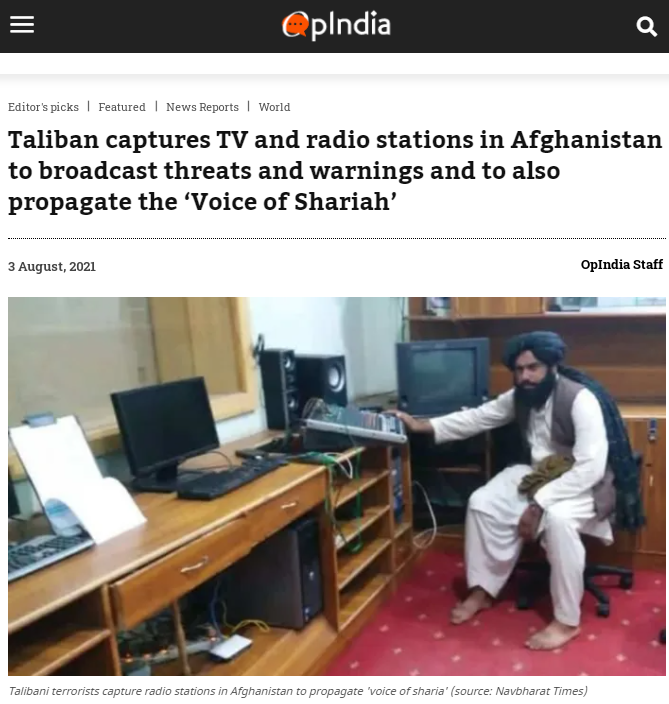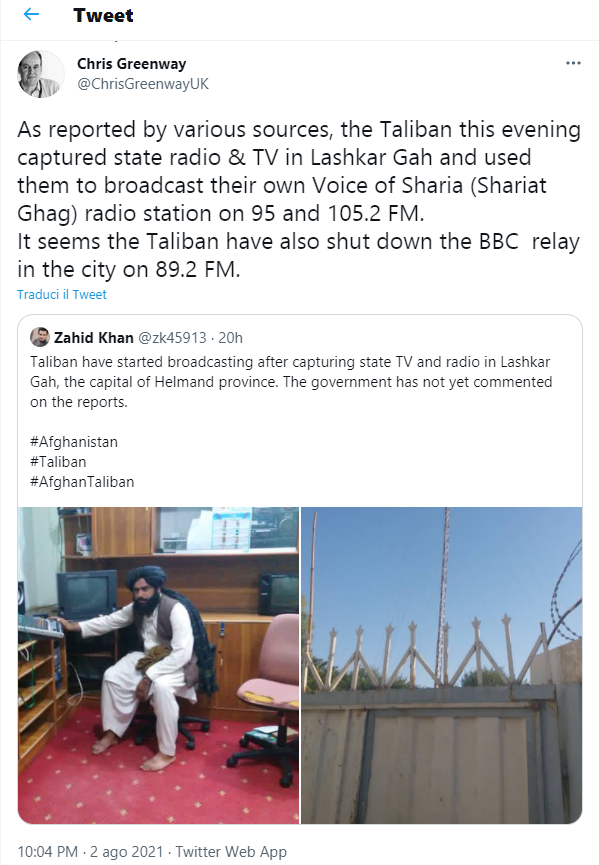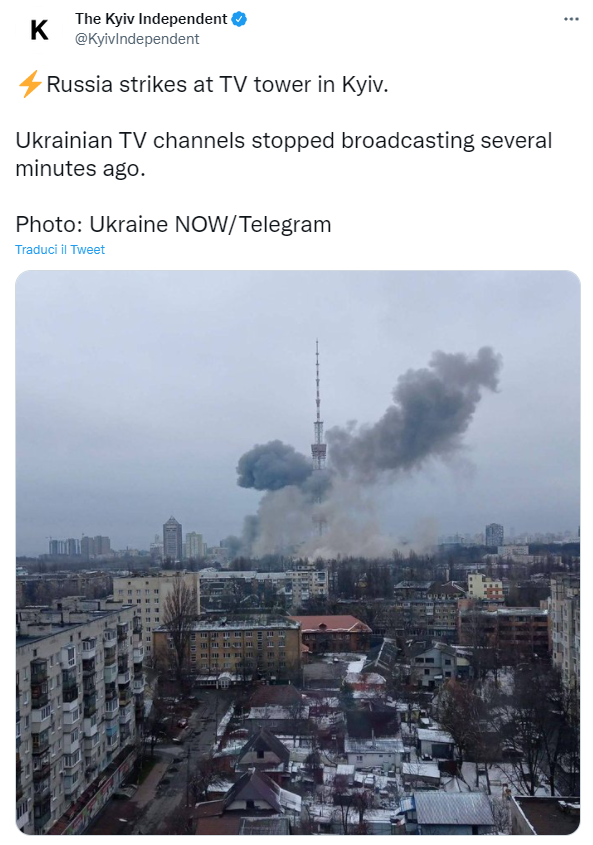
there were five casualties and five injured. Most stations resumed broadcasting after a few hours.
Source
1 March: Moscow tries to switch off the capital’s broadcasters
At the beginning of the invasion of Ukraine, Russia targeted social networks, which in response raised their defences to prevent tracking of users in the occupied territories and blocked Kremlin-controlled media. But since March, the target has been extended to radio and television infrastructures, even though the Russian army is keeping Ukrainian mobile phone networks intact for use due to technical problems with encrypted military communication systems). Europe’s response is not long in coming.
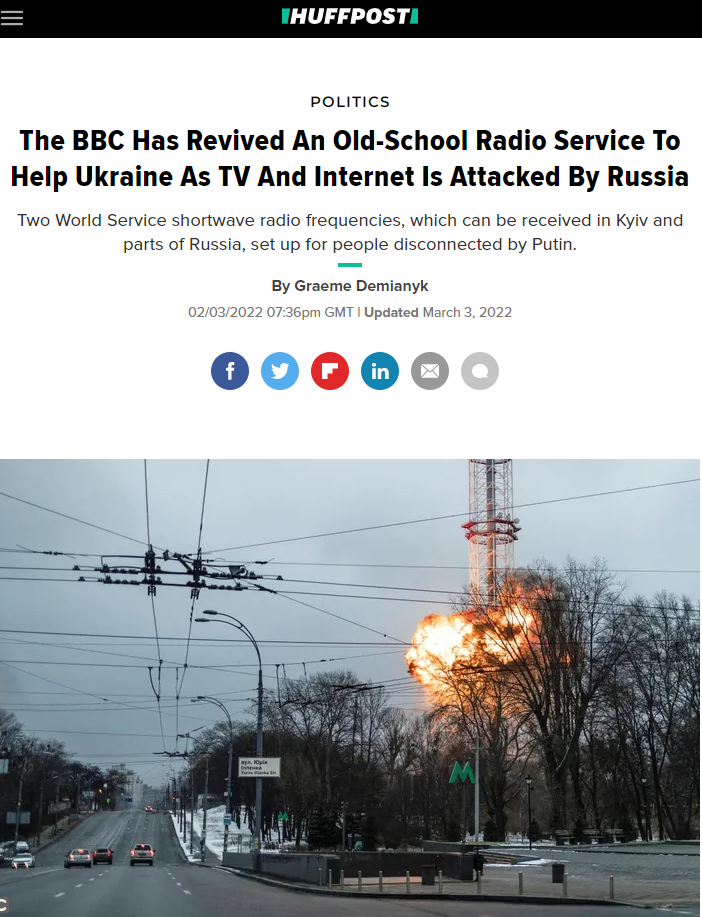
Source
Ukraine is a largely flat country, and in the capital, even if antennas were placed on a skyscraper (the tallest, the 178-metre Klovsky Descent 7A, was inaugurated in 2015), the signal would be absorbed by the ground after a few tens of kilometres, due to the earth’s curvature. A respectable transmission tower is therefore used to extend coverage. Built between 1968 and 1973, during the time of the Soviet Union, it has a diameter at the base of 90 metres and is 380 metres high. It is the tallest in the world (among those made entirely of metal) and the tallest building in Ukraine. (Wikipedia info here).
On GoogleMaps, there are several pictures and with StreetView you can ‘walk’ around the tower, changing perspective.
2 March: BBC responds by dusting off the short waves
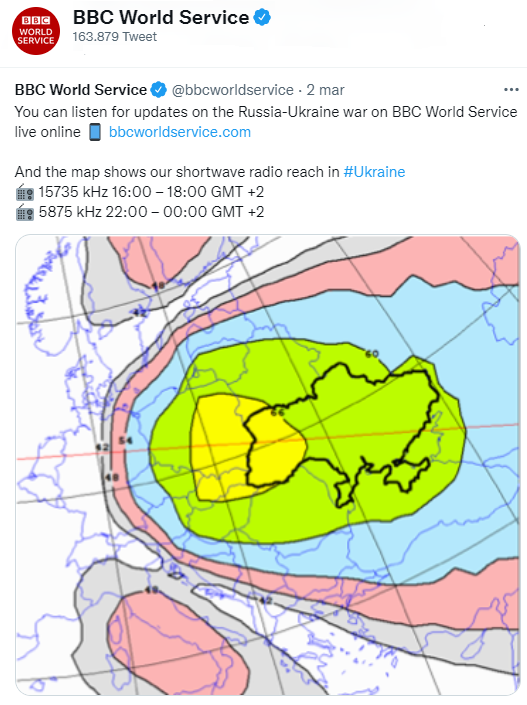
Source
In order to inform the Ukrainian population, the BBC is reactivating two short-wave frequencies that used to broadcast the news of the World Service for four hours a day (broadcasts to Europe had ended in 2008). These are the British transmitters in Woofferton. Built during World War II, and privatised at the end of the Cold War, it is still used by the BBC to broadcast the World Service and leased to other broadcasters (Deutsche Welle, Voice of America, Voice of Vietnam).

